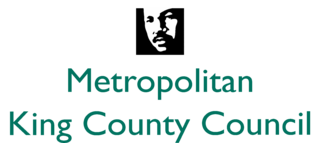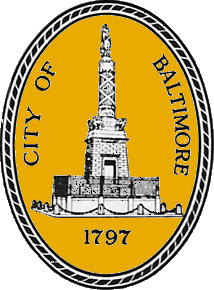Proportional representation (PR) characterizes electoral systems in which divisions in an electorate are reflected proportionately in the elected body. If n% of the electorate support a particular political party, then roughly n% of seats will be won by that party. The essence of such systems is that all votes contribute to the result - not just a plurality, or a bare majority. The most prevalent forms of proportional representation all require the use of multiple-member voting districts, as it is not possible to fill a single seat in a proportional manner. In fact, the implementations of PR that achieve the highest levels of proportionality tend to include districts with large numbers of seats.

Question P was a Baltimore City referendum issue on the November 5, 2002, General Election ballot in which voters overwhelmingly approved reducing the size of the Baltimore City Council from 19 council members to 14 members, each to be elected by a different local district.

The Metropolitan King County Council, the legislative body of King County, Washington, consists of nine members elected by district. The Council adopts laws, sets policy, and holds final approval over the budget. Its current name and structure is the result of a merger of King County and the Municipality of Metropolitan Seattle, better known as Metro, which was a federated county-city structure responsible for water quality and public transportation.

Philippine elections are of several types. The president, vice-president, and the senators are elected for a six-year term, while the members of the House of Representatives, governors, vice-governors, members of the Sangguniang Panlalawigan, mayors, vice-mayors, members of the Sangguniang Panlungsod/members of the Sangguniang Bayan, barangay officials, and the members of the Sangguniang Kabataan are elected to serve for a three-year term.

Elections in Rwanda take place within the framework of a multi-party democracy and a presidential system. The President and majority of members of the Chamber of Deputies are directly elected, whilst the Senate is indirectly elected and partly appointed.

The Western Australian Legislative Council is the upper house of the Parliament of Western Australia, a state of Australia. It is regarded as a house of review for legislation passed by the Legislative Assembly, the lower house. The two Houses of Parliament sit in Parliament House in the state capital, Perth.

Parliamentary elections were held in Russia on 12 December 1993. They included the last elections to the Federation Council of Russia.

The Baltimore City Council is the legislative branch that governs the City of Baltimore and its nearly 700,000 citizens. It has 14 members elected by district and a president elected at-large; all serve four-year terms. The Council holds regular meetings on alternate Monday evenings on the fourth floor of the Baltimore City Hall. The Council has seven standing committees, all of which must have at least three members.

The District of Columbia Republican Party is the DC affiliate of the United States Republican Party. It was founded on June 19, 1855 and is made up of registered Republican voters living in the Washington, DC elected to serve as the governing body of the Party. The party chairman is Jose Cunningham and the party is housed in the District of Columbia alongside the Republican Party national headquarters.

The 1983 Urban Council election was held on 8 March 1983 for the elected seats of the Urban Council. It marked the centenary of the establishment of the Urban Council and the largely reformed electoral methods with the creation of the district-based constituencies and massive expansion of the electorate.

Federal elections were held in Switzerland on 28 October 1860. Despite large losses, the Radical Left remained the largest group in the National Council, winning 64 of the 120 seats.

Federal elections were held in Switzerland on 28 October 1866. The Radical Left remained the largest group in the National Council.

Federal elections were held in Switzerland on 31 October 1869. The Radical Left remained the largest group in the National Council.

Federal elections were held in Switzerland on 31 October 1875. The Radical Left remained the largest group in the National Council.

Federal elections were held in Switzerland on 27 October 1878. The Radical Left remained the largest group in the National Council.

Federal elections were held in Switzerland on 30 October 1881. The Radical Left remained the largest group in the National Council, regaining the majority they had lost in 1863.

Federal elections were held in Switzerland on 26 October 1884. The Radical Left retained its majority in the National Council.

Federal elections were held in Switzerland on 30 October 1887. The Radical Left narrowly retained its majority in the National Council.

Federal elections were held in Switzerland on 29 October 1893. The Radical Left narrowly retained its majority in the National Council.

Federal elections were held in Switzerland on 29 October 1911. The Free Democratic Party retained its majority in the National Council.
















